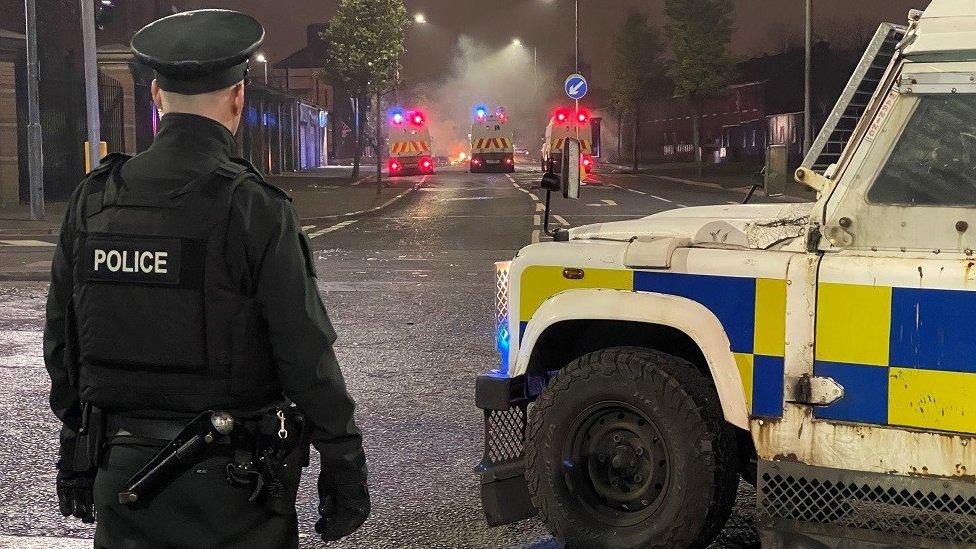PSNI: Jon Boutcher says recruitment drive to launch in April
- Published
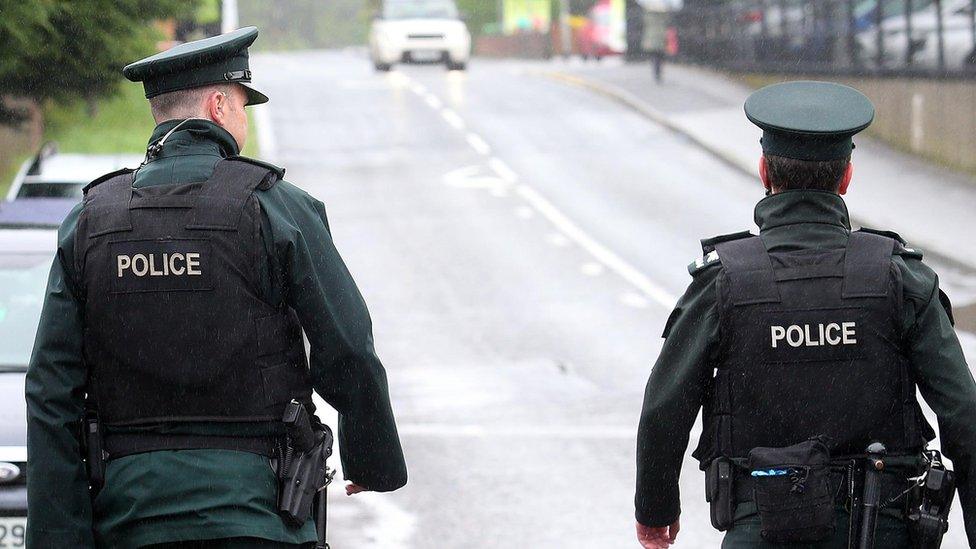
There are currently about 6,500 officers in the PSNI
The Police Service of Northern Ireland (PSNI) chief constable has said the police will recommence recruitment of officers from April - a move he described as "a welcome turning point".
Numbers have fallen by around 1,000 in recent years due to budget pressures.
John Boutcher told the Northern Ireland Policing Board the PSNI want to recruit 350 officers in the next 12 months.
This is likely to be dependent on securing the necessary finances under a new Northern Ireland Executive.
The chief constable's remarks come on the day MPs urged the government to provide the cash required to have a police service of "at least" 7,500 officers.
Numbers are currently around 6,500.
A headcount of 7,500 was most recently backed in the New Decade, New Approach political deal in 2020.
It also dates back to reforms which established the PSNI in 2001.
Inflationary pressures have stretched the PSNI's £800m annual budget to the point where it has frozen recruitment and is not replacing officers who leave.
Officer numbers are now at a record low.
According to PSNI data, it had 6,493 officers on 1 January, with the figure projected to fall by several hundred, unless it receives more money.
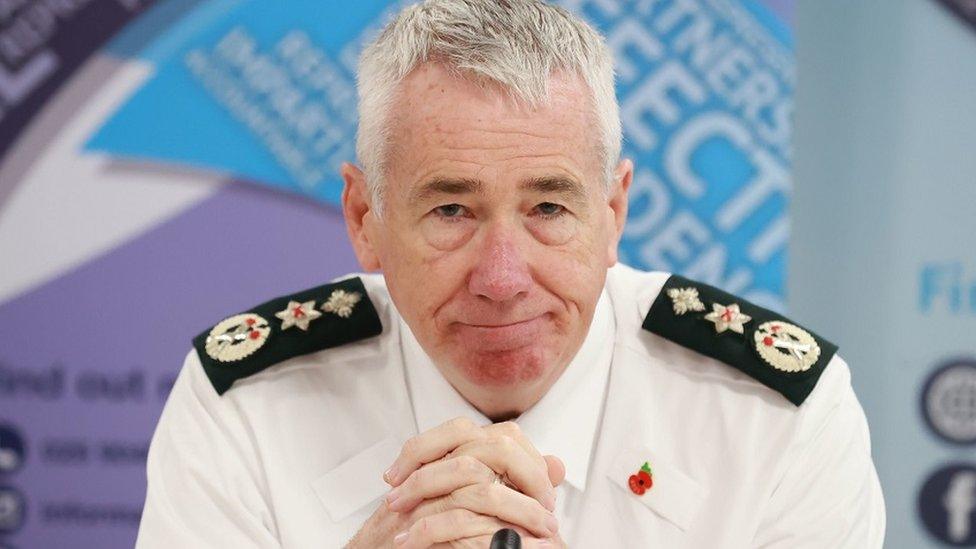
Jon Boutcher did not disclose how many new officers will be hired
The Westminster committee's report on the effect of paramilitary activity and organised crime on society in Northern Ireland follows evidence sessions over almost two years.
It stated: "The justice budget in Northern Ireland has risen by just 3% compared to respective increases of 70% and 45% for health and education over the last 12 years.
"We consider this level of funding to be unsustainable.
"We recommend the government ensure NI receives funding in 2024, and on a recurrent basis, which enables the PSNI to provide fair pay awards and increase headcount to at least 7,500 officers."
The report also added: "The government must work with the executive to improve prosecution rates for paramilitary-style attacks."
The MPs further stated they were "concerned" by claims that paramilitary groups "masquerade" as community organisations to receive public money.
Their report called for a tightening of regulations to better "gatekeep" funding.
"The government, Northern Ireland executive (when it is established), and the Irish government must agree as soon as possible a common approach to engagement with, and funding of, community organisations that claim to tackle paramilitarism."
The report also addressed the idea of formal engagement with paramilitary groups to help bring about their disbandment.
The proposal has been floated in annual reports by the Independent Reporting Commission.
'Elephant in the room'
"We heard evidence for and against such a move," the committee's report said.
"We are concerned that a process aimed at the disbandment of paramilitary groups could inadvertently risk reinforcing the status of such groups and fail to displace the coercive control they hold over some communities.
"We are also aware, however, that a strategy to end paramilitarism which does not engage with existing paramilitary structures ignores the elephant in the room."
The report said that for "any process to have a chance of success, it must hold the confidence of political parties and receive widespread public support in Northern Ireland".
"We call on the government to conduct a scoping exercise to assess public support, which should include dedicated engagement with people who have experienced violence and harm from paramilitary groups."
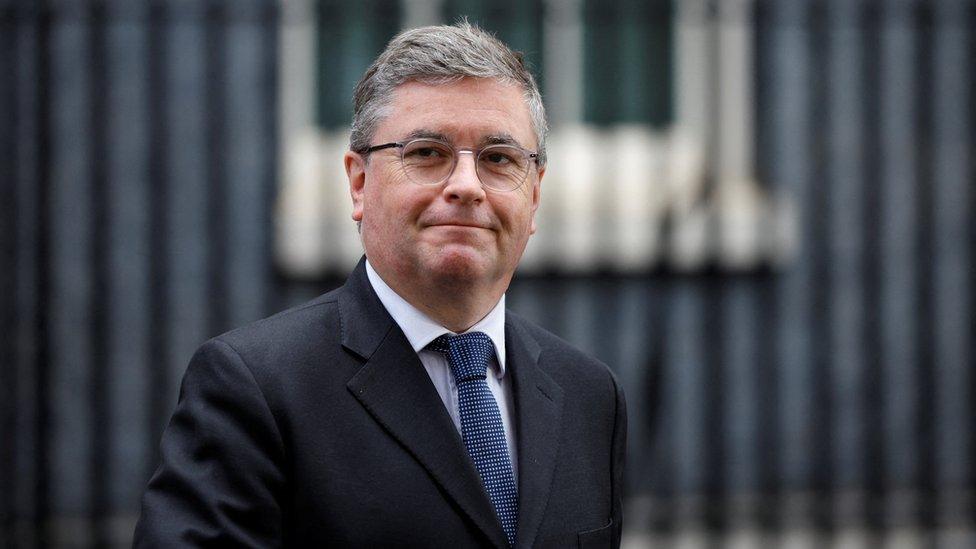
Sir Robert Buckland compared the way in paramilitaries exploit the vulnerable to "modern day slavery and child abuse"
Sir Robert Buckland, the chair of the NI Affairs Committee, compared the way in paramilitaries exploit the vulnerable to "modern day slavery and child abuse".
He told BBC NI's Good Morning Ulster: "It might not be apparent to the majority of people but this insidious behaviour is still going on."
Sir Robert said that at the heart of paramilitarism is "criminality".
"A twin approach of scaling up investigation and prosecutions, and dealing with it on a public health basis forms the core of our report recommendations."
He would not put a figure on the amount of money required but said longer term planning was needed with a focus also being on the recruitment and retention of officers.
Related topics
- Published12 November 2023

- Published7 December 2022
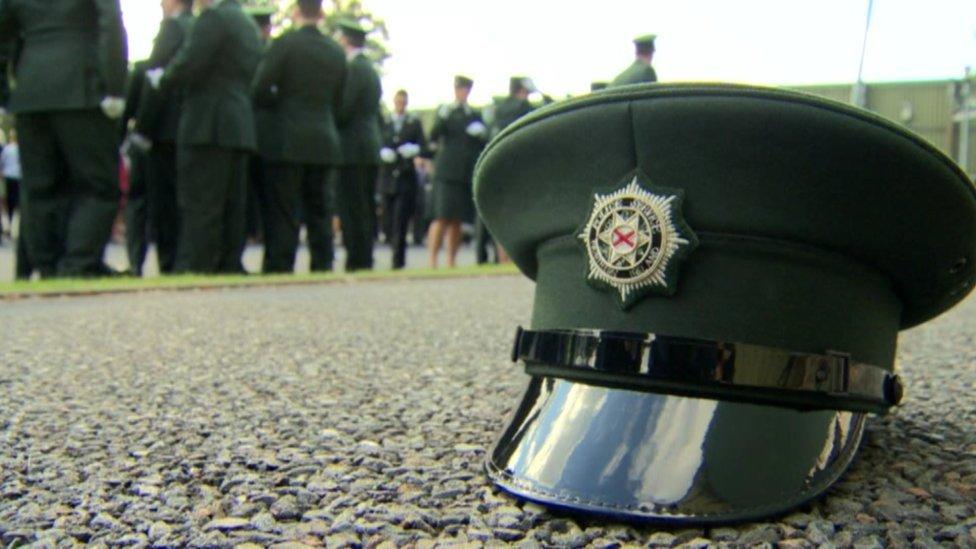
- Published22 January 2022
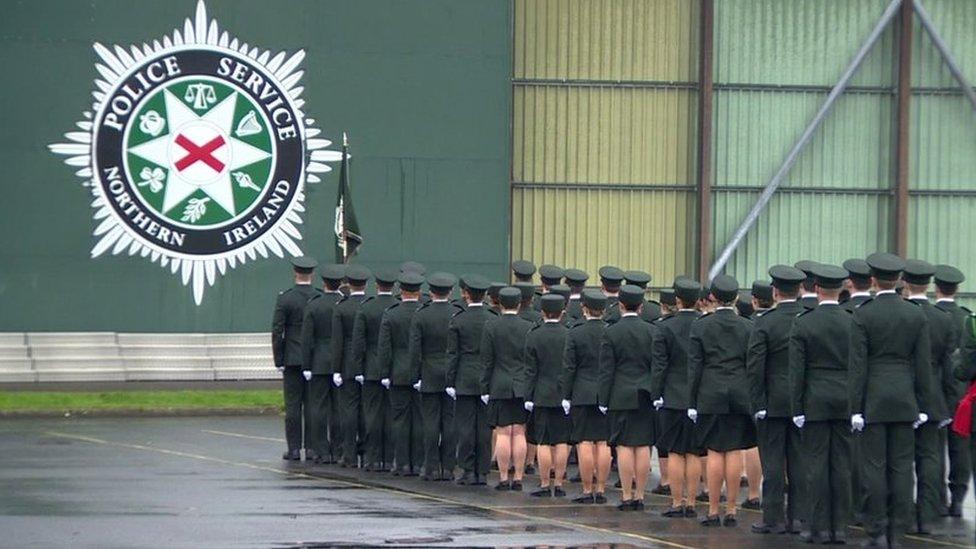
- Published30 December 2023
